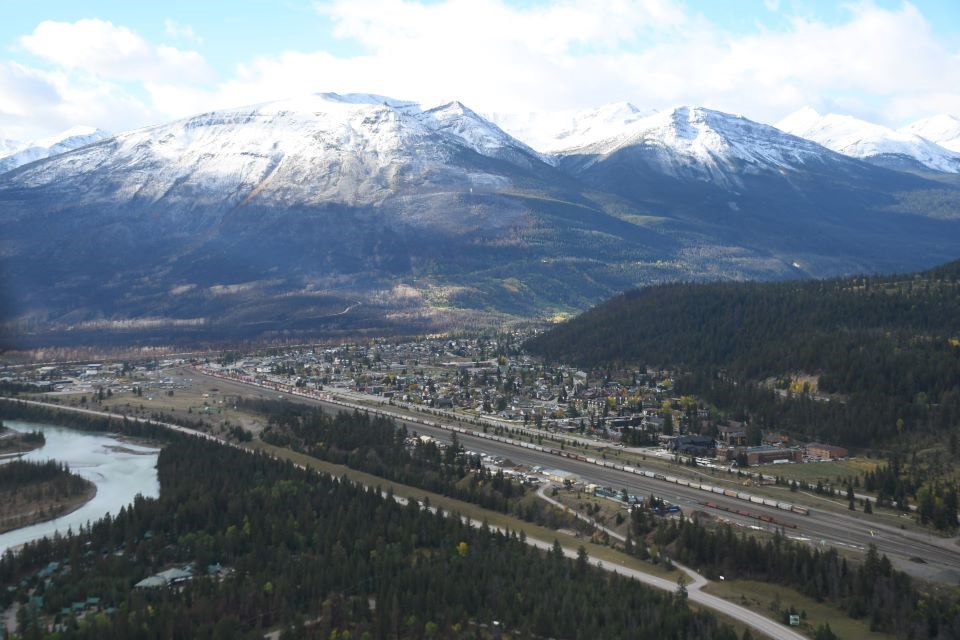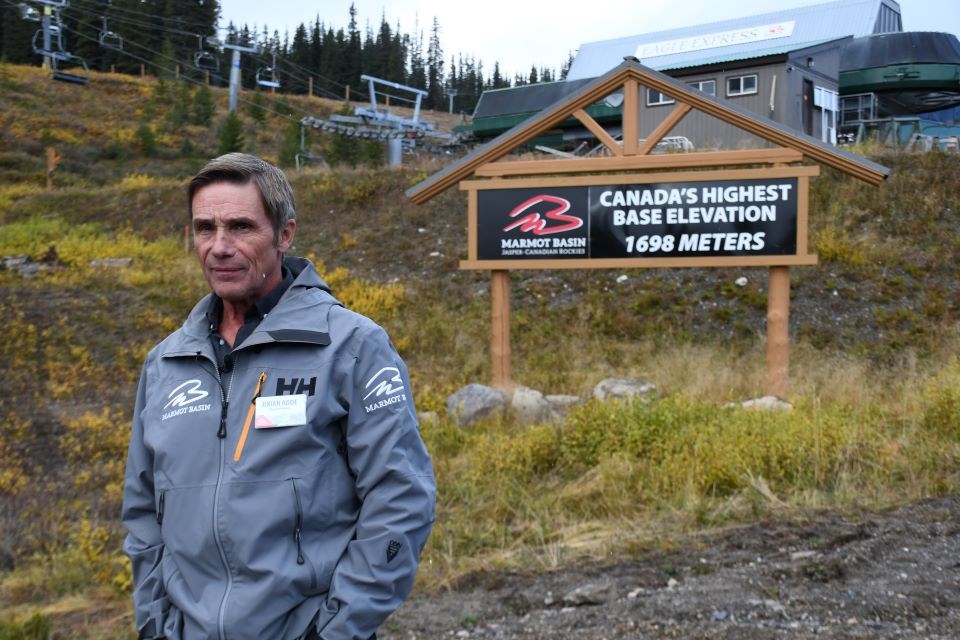With Jasper having lost $4.5 million per day in net visitor revenue during the wildfire evacuation last summer, according to Tourism Jasper data, businesses have their financial hopes pinned on this winter.
Tourism Jasper CEO Tyler Riopel said the destination has slowly been reopening this fall with more businesses and attractions opening on a weekly basis.
“Everybody’s headed in the right direction by and large, but we’re still seeing various retail and restaurants starting to come back online at different paces,” Riopel said.
Tourism Jasper is currently focused on marketing the fact that Jasper is open for business and “battling the uncertainty” around whether it was appropriate to visit Jasper.
“We have to build that momentum back up, and so that’s the stage we’re in right now,” Riopel said. “It’s going to be a slower October than normal, most likely, but hopefully, we sort of hit our stride getting into winter.”
Jasper represents $625 million in annual tourism spending and accounts for 25 per cent of visitor spending in the Canadian Rockies. Riopel noted that Jasper’s social recovery was dependent on economic recovery, and at least half of the jobs in Jasper were directly linked to tourism.
“The only way to get our workforce back going and the only way to get our businesses back going again is by getting visitation back,” he said. “We need these visitors in order for our economy to thrive.”
Although Riopel was confident Jasper still had plenty of tourist offerings post-wildfire, he estimated that the destination had lost 30 per cent of visitor beds. During the winter, Jasper hotels are typically at 85 per cent occupancy on weekends and 40 per cent on weekdays.
“We know on the weekend that demand should exceed supply this winter, and then we know on the weekdays that there’s still going to be opportunity,” Riopel said. “And so, the key is going to be in really getting midweek visitation because that’s when we know we’ll have capacity.”

Paul Butler, executive director of the Jasper Park Chamber of Commerce, said he has been reaching out to Jasper businesses through an informal email survey about housing needs for seasonal employees.
“Right now, that is the most clear and present danger that businesses feel they face,” Butler said. “And it’s uneven, of course. Some businesses didn’t lose any staff accommodation. Some lost it all. Some don’t have staff accommodation and were not providing their own accommodation for their staff.”
He roughly estimated that the community would find itself short of 100 units for employee housing this winter. He also highlighted how businesses were worried about the slow progress on interim housing.
In addition, Butler estimated around 40 in-town businesses had been destroyed in the fire and 300 businesses had been affected to varying degrees.
Seeing businesses begin to reopen gave Butler hope that Jasper would have a semblance of a normal winter season. However, he remained worried about the lack of accommodation for frontline workers, particularly for those in the visitor service sector.
“Frankly, we’re going to discover that there’s a real housing gap that is not necessarily addressed by the government assistance that we are seeing from both provincial [officials] and the municipal government,” he said.

Jasper’s ski resort, which was spared from the wildfire, is planning to reopen its slopes this winter. Brian Rode, vice president of Marmot Basin, estimated the resort would be ready to open this November despite being behind schedule with regular maintenance due to the evacuation.
“We are behind the eight ball, but we have our crew working now seven days a week, and [the lifts will] be ready to go,” he said. “We just have to really compress that work into less time.”
Rode said one of their biggest issues was a shortage of staff accommodation in the wake of the fire.
“Now, fortunately, we are fully staffed, and we’re also now in a position where the vast majority of our staff now do have accommodation, so we’re happy for that,” he said. “It takes a lot of work. It has taken a lot of work, and that is one of the biggest challenges for this community right now, is to make sure that all of our workers do have a place to live.”
Rode recommended skiers and snowboarders come during the midweek or make hotel reservations in advance if they are planning a weekend trip.



